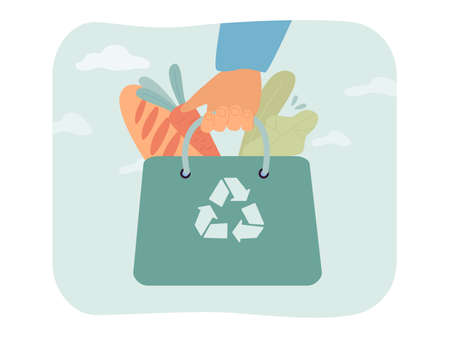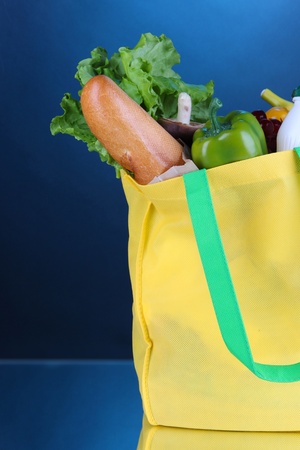Introduction: The Plastic Waste Challenge in the UK
Plastic pollution remains a pressing issue in the UK, with single-use plastics accounting for a significant portion of environmental waste. Recent figures from the Department for Environment, Food & Rural Affairs (DEFRA) reveal that the UK generates over five million tonnes of plastic annually, and less than half is recycled. This has led to concerning levels of plastic contamination in rivers, coastlines, and urban areas. Responding to this challenge, the UK government has launched several initiatives aimed at curbing single-use plastics. In 2020, England introduced a ban on plastic straws, stirrers, and cotton buds; Scotland followed suit with restrictions on single-use cutlery and plates in 2022. Major supermarkets and high street chains are also under increasing pressure to reduce plastic packaging and offer more sustainable alternatives. These concerted efforts signal a growing commitment across public and private sectors to tackle the plastic waste crisis and pave the way for more sustainable living practices throughout the country.
Everyday Plastic-Free Swaps: Products and Practices
For those living in the UK, transitioning to a plastic-free lifestyle is not just about protecting the environment—it’s also about supporting local solutions that are practical and accessible. British consumers can make meaningful changes by replacing everyday plastic items with sustainable alternatives that suit their routines and local context. Below, you’ll find practical tips and a table of popular swaps to help get started on your journey towards a plastic-free home.
Simple Swaps for Common Household Plastics
Making the switch doesn’t have to be overwhelming. Focus first on single-use plastics, which are prevalent in British supermarkets and households. Many UK brands now offer eco-friendly options for items such as shopping bags, food wrap, and personal care products. By choosing these alternatives, you support local businesses and reduce your carbon footprint simultaneously.
Plastic-Free Swap Table for British Homes
| Common Plastic Item | Plastic-Free Alternative | UK-Based Brands/Solutions |
|---|---|---|
| Carrier Bags | Reusable cotton or jute bags | Bag for Life (available at major supermarkets) |
| Cling Film | Beeswax wraps | BeeBee Wraps, Eco Food Wraps UK |
| Bottled Water | Refillable stainless steel bottles | Chilly’s Bottles, S’well UK |
| Plastic Toothbrushes | Bamboo toothbrushes | Bamwoo, Truthbrush |
| Coffee Cups (Single Use) | Reusable cups (BPA-free) | KeepCup UK, Ecoffee Cup |
Tips for Sustainable Success in the UK Context
- Shop at zero-waste stores: Many cities across the UK now feature refill shops where you can bring your own containers for dry goods, cleaning supplies, and toiletries.
- Support local markets: Buying fresh produce from farmers’ markets reduces packaging waste compared to supermarket produce wrapped in plastic.
- Embrace the British tradition of ‘make do and mend’: Repair household items rather than replacing them, extending their life and reducing plastic consumption.
- Liaise with your local council: Take advantage of community recycling schemes and composting initiatives that align with UK waste management practices.
- Choose British-made products: Prioritising locally manufactured goods helps reduce transport emissions while supporting the national economy.
By gradually adopting these swaps and practices tailored for Britain’s unique market and environmental priorities, you can create lasting habits that benefit both your household and the wider community.

3. Spotlight on UK-Based Plastic-Free Brands
When it comes to living plastic-free in the UK, an increasing number of local brands are setting a strong example. From household names in the supermarket aisles to independent businesses on your local high street, British innovators are creating alternatives that make sustainable choices more accessible and convenient for everyone.
Major Supermarkets Leading Change
Supermarkets such as Waitrose and Marks & Spencer have introduced refill stations, paper-based packaging, and loose produce sections, enabling shoppers to reduce single-use plastic in their weekly shop. Iceland has taken a bold step by pledging to eliminate plastic packaging from its own-brand products, while Tesco and Sainsbury’s are trialling reusable packaging schemes with partners like Loop, letting customers return containers for cleaning and reuse.
Independent Pioneers and Start-Ups
Across the UK, small businesses are at the forefront of the plastic-free revolution. Brands like Ethical Superstore, Zero Waste Club, and EcoVibe offer everything from compostable kitchen sponges to refillable toiletries. In London, The Source Bulk Foods provides package-free groceries, allowing customers to bring their own containers. In Scotland, Greencity Wholefoods supports zero-waste retailing for both individuals and businesses.
Bespoke Solutions for Everyday Living
British brands are also innovating with specific products: Bamboo Brush offers biodegradable toothbrushes; Lush, originally from Poole, Dorset, is well-known for its “naked” (packaging-free) soaps and shampoos; while Chilly’s Bottles produces stylish reusable water bottles that encourage people to ditch single-use plastics. For cleaning products, companies like Splosh supply concentrated refills in recyclable packaging delivered straight to your door.
The Role of Local Community Shops
The rise of refill shops across towns and cities – from Bristol’s Tare to Manchester’s Ancoats General Store – demonstrates a growing demand for plastic-free shopping experiences. These community-driven businesses often collaborate with local producers, reducing transport emissions as well as packaging waste.
Together, these UK-based brands and initiatives highlight the breadth of options available for consumers looking to reduce their plastic footprint. By supporting local innovators, Britons can make meaningful changes towards a more sustainable lifestyle while keeping convenience firmly in mind.
Sustainable Shopping: Local Markets and Refill Stores
Across the UK, sustainable shopping is rapidly gaining momentum, with a growing number of consumers turning to local markets, refill shops, and zero-waste stores as alternatives to traditional supermarkets. These options not only support plastic-free living but also foster community connections and reduce environmental impact. By making conscious choices at these venues, British consumers are helping to drive demand for less packaging and more sustainable products.
Farmers’ Markets: Fresh and Plastic-Free
Farmers’ markets have long been a staple of British towns and cities. They offer fresh, locally-sourced produce with minimal or no plastic packaging. Shoppers are encouraged to bring their own bags and containers, ensuring that fruit, vegetables, dairy products, and baked goods are acquired without unnecessary waste. Many market stalls also sell household essentials such as soap bars and beeswax wraps—further supporting plastic-free goals.
Refill Shops: A Growing Trend
Refill shops are becoming increasingly popular in urban centres and rural communities alike. These stores allow customers to fill their own containers with dry goods (like rice, pasta, nuts), cleaning products, toiletries, and even cooking oils. This system eliminates single-use packaging from the supply chain. The table below highlights some notable refill store chains and independent shops across the UK:
| Store Name | Location(s) | Main Offerings |
|---|---|---|
| Zero Green | Bristol | Food staples, cleaning products |
| The Source Bulk Foods | London, Brighton & others | Pasta, grains, snacks, body care |
| Earth.Food.Love | Totnes (Devon) | Nuts, cereals, household items |
Zero-Waste Stores: Comprehensive Sustainable Solutions
Zero-waste shops go beyond refill models by offering a curated selection of ethical brands, reusable containers, and compostable packaging alternatives. Many provide workshops on low-waste living and host community events to encourage knowledge sharing. These stores often collaborate with local producers to ensure that all products—from pantry staples to personal care—adhere to strict sustainability standards.
Together, farmers’ markets, refill shops, and zero-waste stores form an essential part of the UK’s transition towards a plastic-free lifestyle. By shopping at these venues and supporting local businesses committed to sustainability, consumers can significantly reduce their plastic footprint while enjoying high-quality goods tailored to British tastes and values.
5. Community Action and Support Networks
Across the UK, community-led initiatives play a vital role in helping households transition to a plastic-free lifestyle. Local groups such as Plastic Free Communities, supported by Surfers Against Sewage, are empowering neighbourhoods from Cornwall to Cumbria to reduce single-use plastics through grassroots action and public pledges. These initiatives often work closely with local councils, who may offer resources like plastic-free starter kits, promote refill schemes, or provide grants for zero-waste projects.
Social groups and community hubs have also emerged as key players in the movement. Many towns now host repair cafés, swap shops, and zero-waste meetups where residents can share tips, access bulk-buying cooperatives, and collectively source sustainable alternatives. In cities such as Bristol and Brighton, refill stations and plastic-free markets are coordinated by local volunteers, making it easier for families to shop with minimal packaging.
Local councils are increasingly supportive of these efforts. For example, several boroughs in London have introduced ‘Plastic Free Champions’ programmes, recognising businesses and schools that actively cut out unnecessary plastics. Educational workshops organised by council teams or environmental charities help raise awareness about the impact of plastic pollution and offer practical guidance for reducing waste at home.
Ultimately, these support networks foster a sense of collective responsibility and make going plastic-free feel less daunting. By sharing knowledge, pooling resources, and celebrating small wins together, communities across the UK are proving that sustainable living is both achievable and rewarding on a local level.
6. Overcoming Challenges: Tips for Staying Plastic-Free in the UK
Adopting a plastic-free lifestyle in the UK is an admirable goal, but it does come with its own set of challenges. Many individuals cite cost and convenience as the main barriers to going plastic-free. However, with evidence-based strategies and practical solutions, these obstacles can be effectively managed for long-term sustainable living.
Addressing Cost Concerns
One common misconception is that plastic-free alternatives are always more expensive. While some eco-friendly products do have a higher upfront cost, research by Zero Waste Scotland shows that reducing single-use plastics often leads to long-term savings. For example, investing in a reusable water bottle or coffee cup pays off over time compared to buying disposable options daily. Shopping at local refill stores—now increasingly available across UK towns and cities—also enables consumers to purchase only what they need, minimising waste and unnecessary spending.
Navigating Convenience Barriers
Convenience is another significant factor. Many people rely on supermarkets where plastic packaging is still prevalent. To counter this, try planning ahead: bring your own bags, containers, and produce nets when shopping. Take advantage of local farmers’ markets or veg box schemes such as Riverford or Abel & Cole, which often use less packaging and support British producers. Additionally, subscribing to local milk delivery services (the classic British milkman) provides fresh milk in glass bottles, which are collected and reused—a simple swap that has stood the test of time.
Building Sustainable Habits
Behavioural science suggests that building new habits is key to overcoming inertia. Start small—replace one item at a time, such as switching to bar soap instead of liquid soap in plastic bottles. Keep a ‘plastic audit’ for a week to identify your biggest sources of plastic waste and target those areas first. Engage family or friends for accountability; community groups like Plastic Free Communities, supported by Surfers Against Sewage, offer motivation and practical tips tailored to your locality.
Long-Term Strategies for Success
Staying plastic-free isn’t about perfection—it’s about progress. Celebrate milestones and don’t be discouraged by occasional setbacks. Keep up-to-date with local council recycling guidelines as these can vary widely across the UK. Support businesses prioritising plastic reduction and share your experiences online using UK-specific hashtags like #PlasticFreeUK or #ChooseToReuseUK to inspire others and build momentum.
Conclusion
Tackling the challenges of cost and convenience requires both personal commitment and community support. By leveraging local resources, making informed choices, and adopting gradual changes, living plastic-free in the UK becomes not only feasible but rewarding—for both your wallet and the environment.


